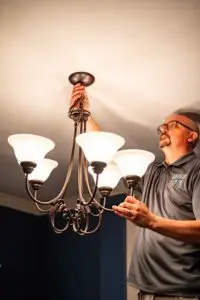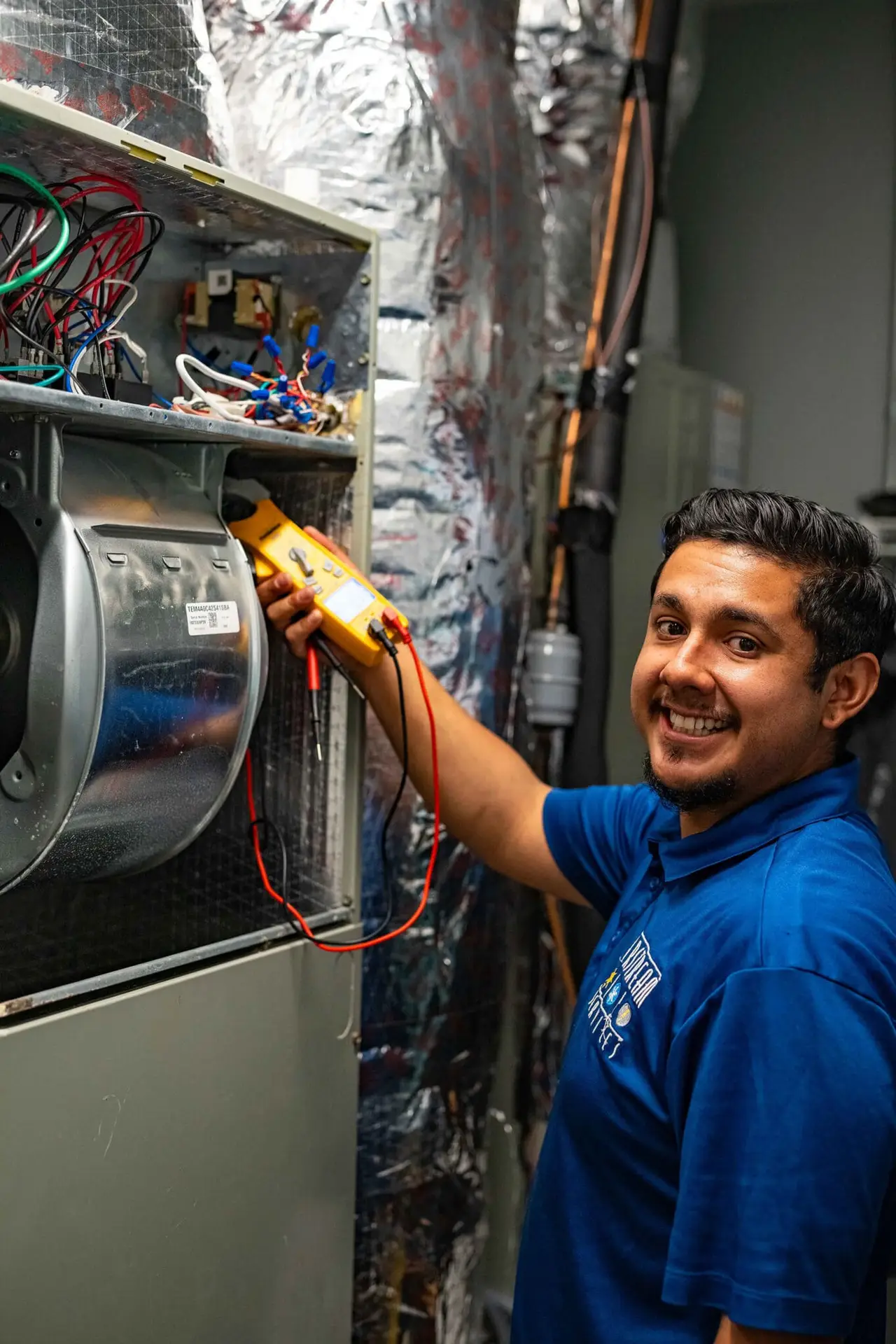
Why Are My Lights Flickering?
Have you ever experienced those annoying, intermittent light flickers in your home? As a local electrician with years of hands-on experience in Middle Tennessee, I understand how unsettling it can be. Today, I’m here to help you troubleshoot potential causes and guide you on when to call in a licensed professional. In this article, I’ll explore common causes of flickering lights, discuss if this problem is dangerous, and explain the best time to reach out to a licensed electrician. Let’s dive in and shed some light on this frustrating issue.
Common Causes of Flickering Lights
Flickering lights in your home are rarely the result of a single issue; instead, they often stem from multiple factors interacting. Let’s look at some common causes in detail.
1. Loose Light Bulb or Connection
A loose light bulb or a faulty connection can be the simplest reason for flickering lights. When a bulb isn’t screwed tightly into its socket, the micro-movements can interrupt the electrical current. In many cases, simply re-seating the bulb or checking its connection resolves the issue. Additionally, corroded contacts in older fixtures can also cause flickering, leading to intermittent power flow and inconsistent illumination.
2. Faulty Light Switch or Dimmer
A worn-out or malfunctioning light switch or dimmer can disrupt electrical flow and cause a consistent flickering effect. These components might not handle the wattage required by some bulbs, particularly high-intensity LEDs. Over time, mechanical wear can lead to intermittent connections which result in erratic light output. Upgrading or replacing faulty switches can restore stability to your lighting.
3. Voltage Fluctuations
When the voltage supplied to your home isn’t consistent, you may notice your lights dimming or brightening unexpectedly. Voltage fluctuations can occur due to several reasons including power surges, grid inconsistencies, or sudden demands on your electrical system. If lights flicker when heavy appliances start up, this may indicate that your home’s wiring is struggling to maintain a stable voltage, possibly due to aging infrastructure or an overloaded service panel.
4. Overloaded Circuits
An overloaded circuit is another frequent cause of flickering lights. When too many devices run on the same circuit, the increased load can cause voltage drops that make your lights flicker. This can be particularly evident when air conditioners or heaters are turned on, as these high-power appliances might draw more current than the circuit is designed to handle. Distributing your electrical load across additional circuits may help alleviate this issue.
5. Wiring Issues or Loose Connections
Faulty wiring or loose connections behind your walls can lead to unpredictable power delivery, resulting in flickering lights. Damaged or degraded wiring, sometimes caused by pests or environmental wear, can create intermittent contacts or short circuits. Since addressing wiring issues can be hazardous, if you suspect a wiring fault, it’s best to have a professional electrical inspection to mitigate any fire risk or electrical shock hazards.
Below is a detailed list explaining further potential internal electrical factors that contribute to flickering: 1. Aging Electrical Panels – Old panels may struggle to distribute power effectively across circuits, causing intermittent drops in voltage that lead to flickering.2. Improper Installation – Poorly installed wiring can result in loose connections or improper grounding, creating inconsistent light output.3. Environmental Moisture – Damp conditions can corrode connections within outlets or junction boxes, leading to erratic electrical flow and flicker problems.
Additionally, consider these concrete troubleshooting tips in table form to help you identify the likely cause of your problem:
| Cause | Indicator | Suggested Action |
| Loose Bulb/Connection | Flickers intermittently only at one fixture | Re-seat or replace bulb; check socket condition |
| Faulty Switch/Dimmer | Flickering when turning on/off or gradually dimming | Replace with a higher quality switch or dimmer |
| Overloaded Circuit/Voltage Fluctuation | Flickering in multiple areas especially with heavy appliance use | Distribute load; consult a professional for wiring and panel upgrades |
Is Flickering Dangerous?
Yes, flickering lights can be dangerous if left unchecked. While a sporadic flicker may simply be a nuisance, persistent or widespread flickering could indicate underlying electrical issues that might pose a fire hazard or risk electrical shock. The primary concern is the potential for overheating wiring or deteriorating components that could eventually lead to a short circuit. Electrical fluctuations can also compromise sensitive electronic devices and lead to damage over time. As a responsible homeowner, it’s essential to address these signs early to prevent further risk and ensure your family’s safety.
You should call a licensed electrician as soon as you notice recurring flickering lights that cannot be attributed to a simple loose bulb. If your troubleshooting steps (like tightening bulbs or replacing switches) don’t resolve the issue, it’s imperative to have an expert inspect your system. Unexplained flickering across multiple circuits may signal wiring issues, overloaded circuits, or voltage fluctuations that require professional attention. In these situations, waiting can increase the risk of fire hazard or damage to your electrical appliances. A licensed electrician can conduct a comprehensive electrical inspection, assess circuit load, and verify if your wiring adheres to safety codes. Professional diagnostics will not only pinpoint the issue but also provide you with a reliable solution that maintains your home’s electrical safety.
Frequently Asked Questions
Q: Why do only some lights flicker while others remain steady?
A: This is often due to individual fixture issues such as loose bulbs or localized wiring problems affecting only specific circuits.
Q: Can voltage fluctuations cause damage to my appliances?
A: Yes, significant voltage fluctuations can lead to reduced performance or even damage sensitive electronic appliances over time.
Q: How quickly should I act if my lights start flickering frequently?
A: It’s best to call a licensed electrician as soon as you observe persistent flickering to prevent potential hazards.
Q: Are LED lights more prone to flickering than traditional bulbs?
A: LED lights can flicker if used with incompatible dimmers or if there is an electrical fluctuation, but they are generally more energy-efficient.
Q: What routine electrical maintenance can prevent flickering lights?
A: Regular electrical inspections, updating old wiring, and properly distributing circuit loads are key preventative measures.
Final Thoughts
In conclusion, flickering lights can be more than just a minor annoyance—they often signal underlying electrical issues that need prompt attention. By understanding common causes such as loose connections, faulty switches, voltage fluctuations, overloaded circuits, and wiring issues, you can better judge when to reach out to a professional. Always remember that persistent flickering is a warning sign to protect your home’s safety. If you ever face this issue, don’t hesitate to contact a licensed electrician to ensure the safety and efficiency of your home’s electrical system.




